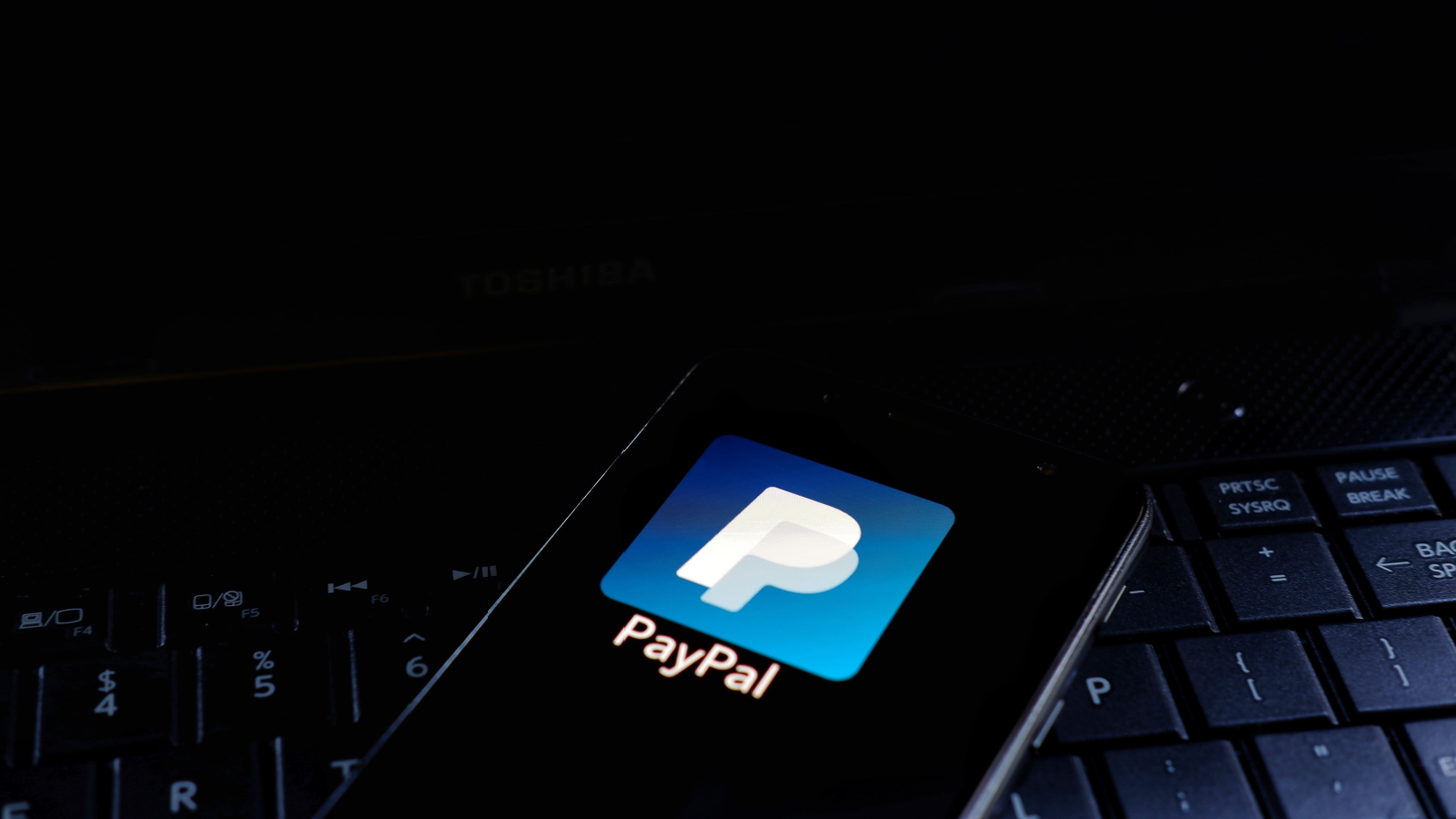There hasn’t been a lot of good news to report for PayPal (NASDAQ:PYPL) shareholders over the past five years. PYPL stock is down 35% in this period, 121 percentage points worse than the S&P 500 on a relative basis.
There are many reasons for this lack of performance.
However, if you’re a glass-half-full person, that it’s up 34% since hitting a five-year low on Oct. 27, 2023, might help.
It is an indication that the worst could be over for CEO Alex Chriss, who officially took over the top job on Sept. 27, 2023. Former CEO Dan Schulman remains on the board until May’s annual meeting.
In early February, I discussed three issues Chriss faced as he worked to remake its business.
“If you’re a risk-tolerant investor, I think you nibble at these prices, waiting for a clear indication that it’s on the mend. That probably won’t be until 2025.” I wrote on Feb. 5. It’s up about 10% in the two months since.
However, it did take a big dip on Feb. 8 after announcing its Q4 2023 results, but they’ve recovered, and then some.
Although I was skeptical of PayPal’s near-term success as it worked to dig itself out of a big hole, I do believe that the worst is over. Here’s why.
Repurchases and PYPL Stock
There is no question that PayPal is fighting to become relevant again in the fintech space. As CEO, Chriss can only solve what’s immediately in front of him before expanding his vision to more grandiose strategies.
In June 2022, PayPal initiated a $15 billion share repurchase program without expiration. As part of its July 2018 program, it repurchased $4.2 billion of its stock at an average price of $102.44 in 2022.
It finished 2022 with $15.86 billion available to buy back its stock. In 2023, it repurchased $5.0 billion at an average price of $67.57. It has $10.9 billion available on its latest repurchase program.
In the company’s Feb. 7 conference call, CFO Jamie Miller said it allocates typically 70-80% of its free cash flow to share buybacks. Given that it expects $5 billion in free cash flow in 2024, it usually would only repurchase $3.75 billion at the midpoint of its target.
However, with $17.3 billion in cash, cash equivalents, and investments on its balance sheet, it opted to repeat its $5 billion repurchase from 2023.
As recently as July 2021, PayPal stock traded as high as $380. With a total debt of just $11.3 billion, it finished the year with $6.2 billion in net cash and free cash flow is expected to increase by 18% in 2024.
If PayPal’s shares only rise to $190, or half its July 2021 all-time highs, the return on investment for these buybacks will be significant.
It’s a no-brainer.
PayPal’s Valuation Remains Undervalued
Wedgewood Partners, a St. Louis-based investment manager with $1.2 billion in assets, is the sub-advisor of the Wedgewood Fund (MUTF:RWGFX).
The fund invests in a focused group of 19 to 21 stocks with market capitalizations greater than $5 billion. PayPal is the fund’s fifth-largest holding, with a 6.7% weighting.
In mid-March, Barron reported some comments from Wedgewood Partners Chief Investment Officer David Rolfe and Aswath Damodaran, a professor at New York University’s Stern School of Business.
“PayPal is trading like a coal mine that has a finite life,” Barron’s reported Rolfe’s comments. “It won’t take a whole lot to get it rerated.”
As Barron’s’ article pointed out, PayPal’s 12-month forward price-to-earnings ratio was 11.5, half Block’s (NYSE:SQ) multiple and similar to banks such as PNC Financial Services (NYSE:PNC) and U.S. Bancorp (NYSE:USB).
According to Morningstar.com data, the two banks’ average three-year annualized revenue growth was 7.5%, about 35% less than PayPal’s. So, at least from a revenue standpoint, PayPal’s growth is not getting much love from investors.
Even with disappointing earnings per share guidance of $5.10 in 2024 and a 34% increase since October, that’s still only 13.1 times 2024 EPS. The company’s five-year average forward P/E ratio is 23.6, much higher than today.
The Bottom Line
Professor Damodaran says it best.
Barron’s reported Damodaran’s comments, “It’s a less attractive company in terms of growth potential, but a more attractive investment from a valuation perspective.”
In 2024, PayPal announced three executive hires, including Chief Marketing Officer Geoff Seeley. He previously was the CMO at CashApp and Afterpay, two of Block’s big revenue generators.
It’s going to take time for Chriss’s team to gel.
Patient investors ought to be willing to wait. At these prices, it’s not a value trap; it’s a buy.
On the date of publication, Will Ashworth did not have (either directly or indirectly) any positions in the securities mentioned in this article. The opinions expressed in this article are those of the writer, subject to the InvestorPlace.com Publishing Guidelines.
